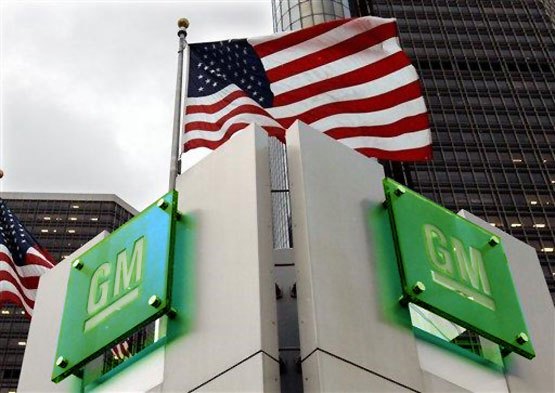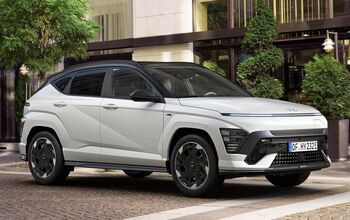Does GM Encroach On Japan's Green Turf?

This is both an interesting and a strange article the The Nikkei [sub] has on GM. First, the interesting part.
While commenting on the fact that GM will jointly develop carbon fiber automobile components with Tokyo-based Teijin, The Nikkei detects a “radical shift in the U.S. auto giant’s business strategy.” The paper comments that GM was once known for its insistence on developing its own technologies. Which, says The Nikkei, played a part in the company’s downfall, because it drove up costs.
“But since emerging from bankruptcy in 2009, GM has shown a willingness to work with companies across industries to develop green technologies.
GM agreed with South Korea’s LG Group in August to jointly develop electric vehicles, expanding on previous agreements to procure batteries and work together on electrical systems.
In September, the U.S. automaker signed another electric-vehicle cooperation agreement, this time with China’s SAIC Motor Corp.
Furthermore, GM has a tie-up accord in battery technology with U.S. start-up A123 Systems Inc.”
So far, so good. Ok, so we get it that GM is getting over the “not invented here” thing and reaches out to other partners. This has been going for a while in the whole industry, and is picking up pace. The costs and challenges are simply too great to shoulder alone, the payback too far out.
What is slightly odd is The Nikkei’s conclusion:
“As it moves to tap the strengths of partners around the world, GM may become a major rival of Japanese automakers even in the field of green vehicles.”
Does that mean that Japan’s leading business daily is giving GM no green-cred for past and current work? Does The Nikkei think that Japanese makers hold an exclusive on green cars?

Bertel Schmitt comes back to journalism after taking a 35 year break in advertising and marketing. He ran and owned advertising agencies in Duesseldorf, Germany, and New York City. Volkswagen A.G. was Bertel's most important corporate account. Schmitt's advertising and marketing career touched many corners of the industry with a special focus on automotive products and services. Since 2004, he lives in Japan and China with his wife <a href="http://www.tomokoandbertel.com"> Tomoko </a>. Bertel Schmitt is a founding board member of the <a href="http://www.offshoresuperseries.com"> Offshore Super Series </a>, an American offshore powerboat racing organization. He is co-owner of the racing team Typhoon.
More by Bertel Schmitt
Latest Car Reviews
Read moreLatest Product Reviews
Read moreRecent Comments
- Lim65787364 Melissa needs to be get my money back up and for new car payment
- 3-On-The-Tree Lou_BCAnd at the top for critical shortage’s to include law enforcement.
- Analoggrotto Kia Tasman is waiting to offer the value quotient to the discerning consumer and those who have provided healthy loyalty numbers thinks to class winning product such as Telluride, Sorento, Sportage and more. Vehicles like this overpriced third world junker are for people who take out massive loans and pay it down for 84 months while Kia buyers of grand affluence choose shorter lease terms to stay fresh and hip with the latest excellence of HMC.
- SCE to AUX That terrible fuel economy hardly seems worth the premium for the hybrid.Toyota is definitely going upmarket with the new Tacoma; we'll see if they've gone too far for people's wallets.As for the towing capacity - I don't see a meaningful difference between 6800 lbs and 6000 lbs. If you routinely tow that much, you should probably upgrade your vehicle to gain a little margin.As for the Maverick - I doubt it's being cross-shopped with the Tacoma very much. Its closest competitor seems to be the Santa Cruz.
- Rochester Give me the same deal on cars comparable to the new R3, and I'll step up. That little R3 really appeals to me.


































Comments
Join the conversation
I'm not sure what they mean here. Sure the Japanese are leading in Green tech but I don't think by much. I think that it's too early in the game to really lay claim to being the foregone conclusion for green technologies. And considering the size of GM, shouldn't they always be considered a competitor regardless of which market you are in? I'm a bit confused as to why this is an issue. ie, business is in business to make money, new markets related to core business are opening up, business invests in new markets. To me this is just logical on GM's part.